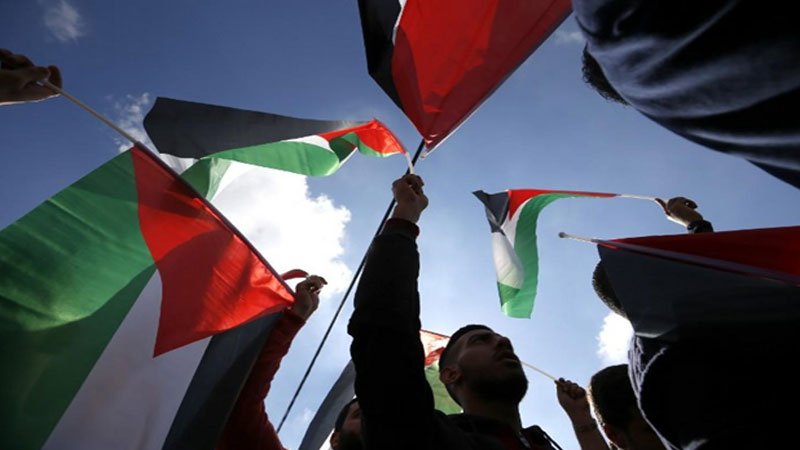।। Muhammad Sharif Altaf ।।
Since the start of the Israeli aggression in Palestine, there have been four Arab-Israeli wars. Although the Arabs have lost every time, the support of the Arabs for Palestine has been seen. But for geopolitical interests, many Arab countries are not on the side of the Palestinians today. The Arab states have become close allies of Israel in their fascination with politics, business and power. Palestine can only be hopeful that Fatah and Hamas top leaders Ismail Haniya and Mahmoud Abbas have agreed to hold elections in the next six months after lengthy negotiations, the first in 15 years.
A rare mixture of Islamist and socialist thought, Fatah was the voice of all the people of Palestine. But when Arafat agreed to negotiate with Israel, the anti-colonial image of Arafat began to crack in the minds of the Palestinian people. Meanwhile, Hamas, which was born in the first intifada, became popular with the Palestinians due to non-compromise during the second intifada in 2000. Capitalizing on this popularity, Hamas defeated Yasser Arafat’s Fatah in the 2006 election. One of the reasons for Fatah’s defeat in the election was to compromise with Israel and sell out the Palestinian struggle.
In 1948, the King of Saudi Arabia asked President Truman whether the United States should remain neutral on the Palestinian question or support the Arabs. Truman said there was no Arab lobby inside the country that would help him to win the election. This is one of the reasons for the one-sided policy of the United States on the question of Israel. In its continuation, President Trump’s “Middle East Peace Plan” has affirmed Israel’s priorities in every layer. Besides, the Gulf state of Bahrain has normalized relations with Israel after the UAE announced the signing of a peace treaty with Israel at the behest of Trump.
The Arab countries laid down three main conditions for establishing relations with Israel. These are the relinquishment of Arab countries’ lands occupied by Israel during the war, the formation and recognition of a Palestinian state, and the transfer of occupied Palestinian land. Even if none of those conditions are met, the Arab countries are building relations with the Jewish state. At the latest Arab League conference, there is confusion over what to say about the agreement between the UAE and Israel, despite Palestinian allegations. Palestine has described the move by Arab states as “stabbing in the back.”
Iranian President Hassan Rouhani criticized Arab countries because of the Arab Emirates and Israel’s covenant. But Iran’s statement against the treaty and compassion for Palestinians are not given importance to the West Bank of Palestine. The residents of the territory has hesitance to strengthen relations with the country because religion ruled state Iran is isolated from other Arab countries and target of the US sanctions. US pressure may arise on Palestine by strengthening relations with Iran. However there is an impact on the Gaza Valley due to Iran’s connection with Hamas and Islamic Jihad Movement parties.
Turkish President Recep Tayyip Erdogan said of the Bahrain deal, “This decision will encourage Israel to continue its unjust actions in Palestine.” Turkey’s message has received more response than that of Iran in Palestine. Many are optimistic about Turkey because they consider Turkey to be a political power to support and cooperate with Palestine. However, Turkey is also currently facing various foreign policy complications. Conflicts with Syrian Kurdish organizations, diplomatic troubles with Greece, conflicts with UN-backed Prime Minister Fayez Sarraj in Libya – all raise concerns about whether Turkey now has the capacity to support Palestine.
Saudi Arabia, meanwhile, feels the necessity to be trusted by the United States and the West to keep its economy afloat. Also, the growing “axis-power” of Iran and its allies in the Middle East has raised concerns in recent times between Saudi Arabia and its allies. And so there is no possibility of getting Saudi Arabia on the side of Palestine. On the other hand, Qatar has always maintained talks with Israel on Palestine and sent a large amount of financial assistance to Gaza. As a result, many Palestinians are optimistic about Qatar in future mediation with Israel. However, these hopes are still unfulfilled.
Palestine hopes Russia will come forward for the Palestinians. But in the Syrian sky, as Russia and Israel have a military roaming, they are interested in maintaining a friendly relationship through mutual cooperation. Thus it is easy to understand that when the Palestinians lose their Arab allies, Trump declares Jerusalem as the capital of Israel, the Palestinians are stripped of their land in the name of the ‘Deal of the Century’, Israeli illegal settlements in the West Bank are legalized, it’s hard to find any effective ally in their struggle.
So, now it is urgent to forget the long-standing enmity between Hamas and Fatah, the two main pro-independence parties in Palestine. But the rift between Fatah and Hamas is not just a conflict, it is an ideological one. Fatah has carried on secular-nationalist goal of a two-state agreement with Israel but Hamas has desperation of Islamist rhetoric of armed struggle until complete victory. Though there is a long history of bad blood and actual bloodshed between them, the only thing the two sides agree on is that they are all Palestinians. Otherwise, it is also a danger of fearing to become more isolated by reducing their influence.
The only hope for Palestine in this crisis is the resolution of the conflict between Fatah and Hamas and a new collective struggle against colonialism and occupation. They are trying to establish a joint leadership in Palestine by overcoming each other’s disagreements. The Palestinians do not know whether there will be an election at all, or whether the West will accept the outcome of the election. However, this partial discussion has raised hopes among the Palestinian people about resolving the conflict between Fatah and Hamas.
The writer is a student of department of international relations, University of Dhaka.

